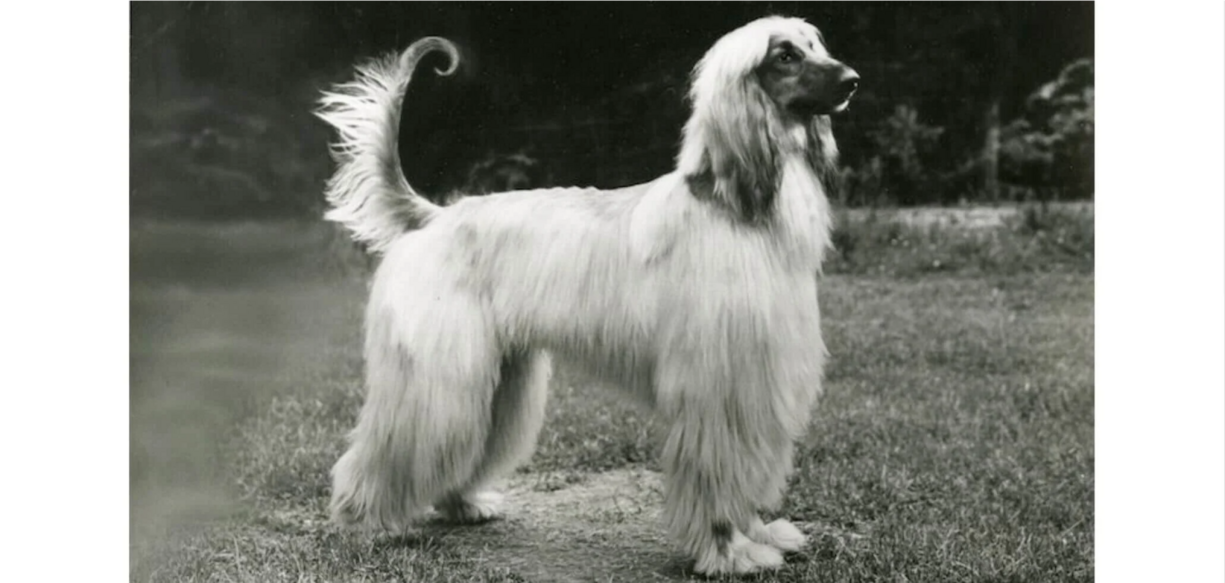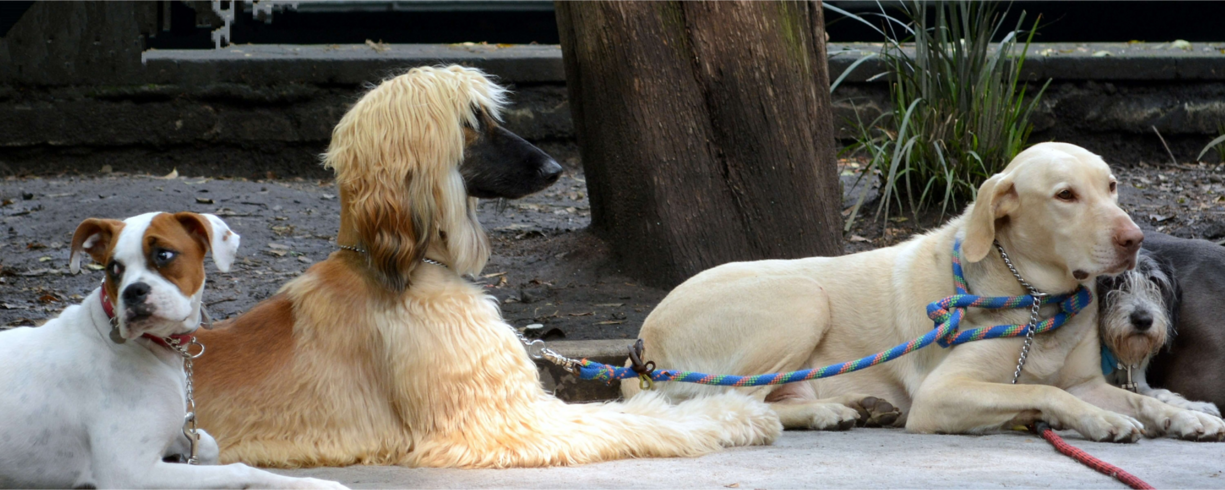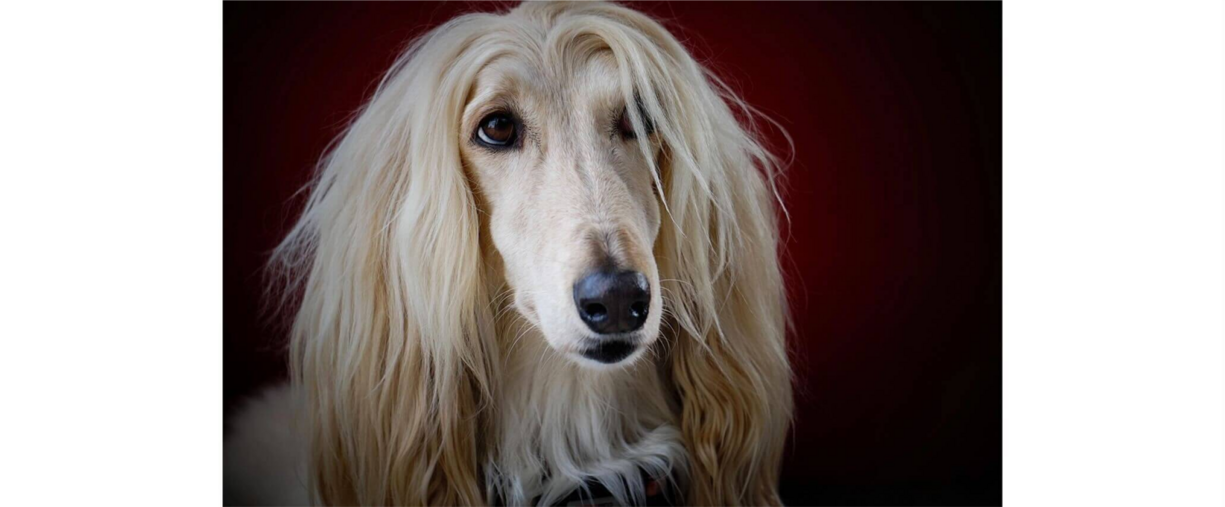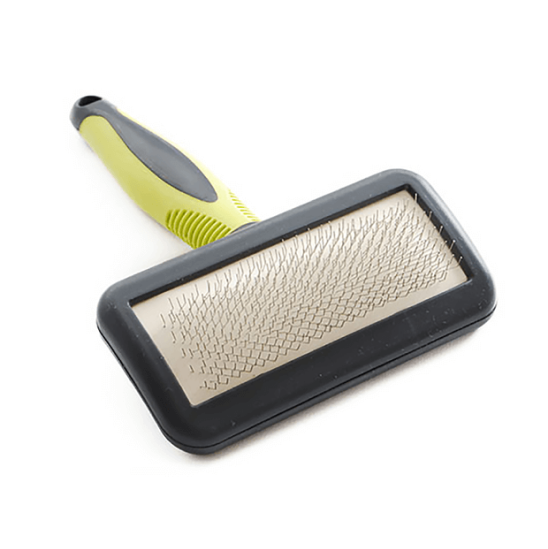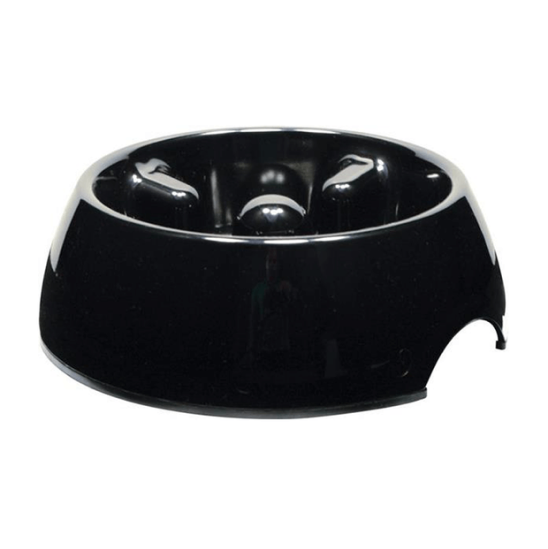The Afghan Hound breed as a whole is typically quite healthy however their large stature makes them prone to gastric torsion and mobility issues.
Gastric Torsion/Bloat
Gastric Torsion/Bloat is a life-threatening condition whereby the stomach expands many times its normal size and in many cases twists and rotates, cutting off its own blood supply. The spleen is usually an innocent bystander that gets pulled into the rotation, also compromising its blood supply. While this condition typically affects deep chested dogs such as the German Shepherd and Great Dane, it can affect any breed and size, even Chihuahuas and Dachshunds. How do you know if your dog has bloat? The main signs to look out for are sudden onset of abdominal distension, distress, anxiety, pain (such as panting, guarding the belly), drooling and multiple unproductive attempts to vomit. What should you do in this situation? Transport them to a veterinary hospital or emergency clinic immediately where urgent treatment and surgery is required. Do not attempt to give anything by mouth.
In breeds with a high risk of bloat, a preventative surgery called a prophylactic gastropexy can be performed at the same time as desexing. The surgery involves securing the stomach to the inside of the abdomen to prevent it rotating. For more information about bloat and preventative surgery, we recommend speaking with your regular veterinarian.
Hip Dysplasia
Hip dysplasia is the abnormal growth and development of the hips. A healthy hip joint operates as a smooth gliding 'ball and socket' joint. Hips that are dysplastic typically have a flattening of the 'socket', resulting in a shallow joint that the 'ball' cannot sit in securely. This leads to instability of the joint; causing pain, inflammation, and the development of osteoarthritis.
The condition is primarily genetic in origin with varying degrees of disease seen between dogs due to a combination of factors such as body weight, exercise, nutrition, and hormonal factors. Rapid growth due to incorrect diet can worsen the dysplasia of the hip joint in affected puppies making correct nutrition so vital at this important stage of growth and development.
To learn more, check out our article on Hip Dysplasia
Eye Problems
Afghan Hounds are prone to a number of eye conditions including:
- - Glaucoma: increased pressure in the eyeball
- - Cataracts:clouding of the lens that leads to blindness
- - Corneal Dystrophy: the term used to describe a number of conditions that cause the corneas to become opaque
- - Cherry Eye: prolapse of the third eyelid gland
Hypothyroidism
Hypothyroidism is a condition in which the thyroid gland is underactive and therefore doesn't make enough thyroid hormone. Thyroid hormones are important for the regulation of the body's metabolism and low levels disrupt many of the body's normal processes.
Signs of hypothyroidism include lethargy, weight gain, unkempt coat and chronic skin and ear infections. Fortunately diagnosis and treatment of this condition is relatively straightforward.
Von Willebrand's Disease
Von Willebrand's disease is the most commonly inherited bleeding disorder of dogs. It is characterised by a defect in the clotting factor called Von Willebrand's factor. This factor usually acts as the glue to hold platelets together to form a clot in order to stop bleeding. Dogs with this faulty clotting factor may appear quite normal until they experience prolonged or excessive bleeding after an injury or surgery. In more severe cases spontaneous bleeding can occur without any history of trauma. If you are considering getting a new puppy, read our vet article on how to find a good breeder to compile your full checklist of questions to ask, including those about genetic disease.
Best health products for Afghan Hounds
These products help to target the Afghan Hound's common health concerns by supporting their skin, joint and gastrointestinal health. Although Afghan Hounds are low shedding their long luscious coats are prone to knots and tangles which will require regular brushing to keep them looking their best.
